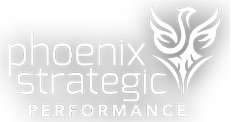In sales, success often hinges on asking the right questions rather than having the right pitch. Mastering the art of inquiry allows you to uncover your prospect’s needs, build trust, and tailor your solutions to provide real value. In this post, we’ll explore why asking great questions is the ultimate sales skill and how it can transform your approach, leading to deeper relationships, customer understanding, and more closed deals.
The Essentials
Questions are the most important tool in your sales toolkit. Never underestimate the importance of questions. They help you navigate through conversations and maximize the opportunity for information gathering. Asking great questions requires mental preparation, agility, and precise communication skills. Before you can ask great questions, consider the question’s purpose.
- Why are you asking the questions?
- What is the best question to use?
- What do you want to gain from this question?
- Who are you asking?
- What is their perspective? What are their goals? What are their issues, challenges, and/or problems?
- How can you phrase your questions to maximize your advantage?
Asking the Question
You have the power to control the kind of information you gather by the type of questions you ask.
Once you have identified your purpose and carefully crafted the most appropriate questions tailored to your prospect's needs, the next crucial step is confidently and strategically asking the question. This involves setting the right tone, choosing the optimal moment, and creating an environment that encourages open and honest dialogue. Doing so can ensure that your questions elicit informative and insightful responses, ultimately leading to a more nuanced understanding of your prospect's situation and how to meet their needs.
Questions Fall Into Two Categories: Open & Closed
Open Questions
Open questions allow the other person to answer from their perspective. They are also other-focused and require excellent listening. The result is broad and deep, other-oriented information. Open questions become your tool to make people feel comfortable and establish rapport. They are the basis for relationship building. They allow you to understand people based on their key issues, creating common ground and a needs-based relationship.
Closed Questions
Closed questions narrow the universe according to your perspective, not theirs. In addition, closed questions typically also narrow the response. By their nature, closed questions have a limited response universe. They also take more brainpower to create and ask.
How to Deliver, Listen, and Evaluate Effectively
Delivery
Frame your questions carefully. Be careful not to bury the question in a stream of other words. Don’t ask a closed question because it’s easy or comfortable but wrong for the information you need. Let the client know you expect an answer. Pause, wait for a response, and let the client know you are interested.
Listening
A question is useless if you don’t listen carefully to the response. Great listening requires focused concentration and mental effort. We also fail to hear when we feel an urgency to express ourselves or rush to our next question.
Evaluation
As you listen, you need to evaluate the answer. Recognize you may need to ask more questions before you get all the information you need. Use open, clarifying questions to ensure you have the correct details, get deeper into the heart of the issue, or discover any hidden resistance. Ask questions that progressively delve more deeply into the problems.
To better understand how to ask great questions, I invite you to learn more about our Sales & Business Development program, which is part of the Phoenix Strategic Performance Institute. This program helps you strategically align your sales process to accelerate the relationship sales process, creating corporate growth and building strategic value.





